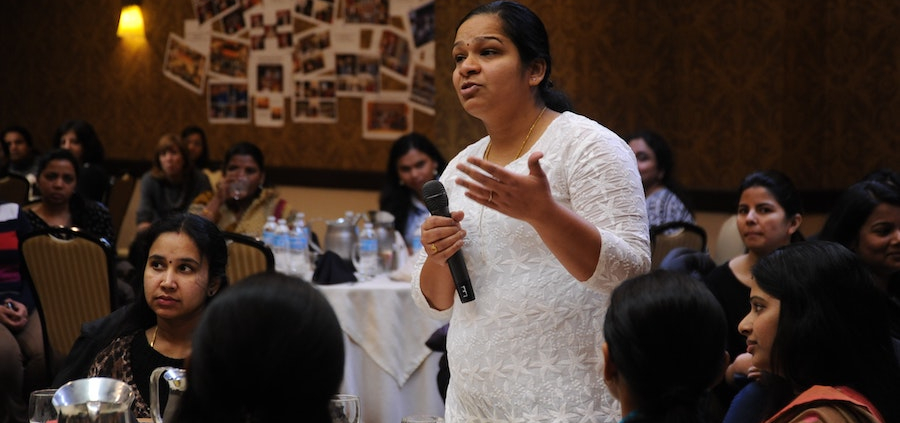A Participatory Politics by William Droel
A book discussion group is a plus for a neighborhood. In fact, any neighborhood with several such groups likely has a strong social fabric. However, a discussion group is mistaken to think it is social action, even if its selections are current affairs.
A small group gathers for breakfast after the 9 a.m. Mass. Its regulars share parish comings and goings and the latest on clergy shenanigans around the country. This breakfast club certainly yields mutual support, but it is not an example of church improvement.
A firm’s young lawyers gather on Friday for drinks. They talk about cases, judges, legal trends, and office culture. This Friday social group is beneficial to its participants, but they are not influencing the policies of their firm or the justice system in their town.
Eitan Hersh, a professor at Tufts University, is interested in electoral politics. He keeps up with opinion polls, commentaries, and surveys, conducts social science experiments, and interviews grassroots activists. He reaches a provocative conclusion: Citizens who volunteer for electoral campaigns also spend time watching and reading the news. They converse with friends about politics. However, “the opposite is not true. . . . Those who spend a lot of time consuming politics are not participating actively in politics at all.”
Among those “who consume news every day, most report belonging to zero organizations.” They care about following politics and exhibit “a growing sophistication in talking about elections.” But they simply don’t care quite enough to participate beyond voting. And even when it comes to voting, they are more motivated by a presidential candidate than they are by policy changes or by midterm campaigns.
Hersh’s fascinating book Politics Is for Power (2020) criticizes these “political junkies” or “political hobbyists.” Their pseudo-engagement actually “hinders the pursuit of political power.” With convincing examples, he describes the alternative, which he calls “deep canvassing” or simply “power politics.” It includes people who are “not following political drama or debating issues” but are serious about “winning people over.” Their method is eliciting stories and sincerely listening. They do not recite a script heavy on issues. These change agents (who exist on the right and left) do not focus on one-off events or “issues and ideological purity.” They are prepared for “slow and steady progress.” For them, power is not a topic, “it’s the goal.”
Hersh is aware that effective public conversations are inherently awkward. They do not add up to a tidy political parable. This style is an exercise in calculated vulnerability. It is respectful of differences and thus has the potential to build trust.
In several asides, Hersh shares research conclusions. Half of nonvoters (except perhaps in a presidential election) are college graduates, yet they are the group more likely to consume political news. Among the nonvoters, half later claim that they voted. Big donors to electoral campaigns are not as interested in issues as they are in connecting with political insiders and other donors at celebrity events. Small donors are attracted by ideology and “provocative appeals.” Men are more interested in politics than women, but women are more likely to vote.
In another aside (one that warrants a full chapter), Hersh applies his thesis to religion. He explores the popular distinction between “spiritual” and “religious.” It is similar, he says, to the distinction between those well-informed on politics but shallow in their political behavior and those who cultivate a grassroots political involvement. The “spiritual” types can include those who know plenty about their denomination, but in their behavior forego a commitment to communal or institutional settings. The longer-haul “religious” types experience the same awkwardness as those involved in real politics. “It takes a certain maturity to find God in the person sitting next to you” during worship, as Hersh concludes.
By several measures, US Catholicism is in decline. Its leaders often describe their desired transition to a renewed Catholicism as one of “evangelization” or, to use their jargon, “the new evangelization.” But what does this mean? In some parishes, the Bible study group is considered “new evangelization.” In other parishes it means a refresher course in dogma. These are good activities, but lacking outward action they are not effective evangelization.
Hersh believes that churches could channel people’s energy into productive “forms of collective action.” But they “do not typically have a serious vision or resources” to help their faithful members “act differently.” The congregation, as should be expected, has meaningful worship. But its other efforts are heavy on socializing and light on truly listening to those who are spiritual but not religious.
It is not a simple pivot from talk to evangelizing action. In church communities as in the political realm, people have scant experience crafting the story of their life or eliciting the stories of friends or fellow parishioners or citizens. A possible exception might be those worshipers and citizens who have benefited from a 12-Step program. Perhaps the tools of synodality, with their focus on recalling and rereading our personal and shared experiences together, can help us build the communication skills necessary to create change. ♦
William Droel is the editor of Initiatives, a printed newsletter on faith and work (sign up for a free subscription here), and the author of Monday Eucharist, available from the National Center for the Laity (PO Box 291102, Chicago, IL 60629; $7).





Leave a Reply
Want to join the discussion?Feel free to contribute!